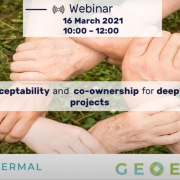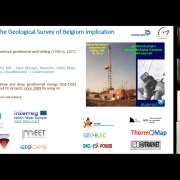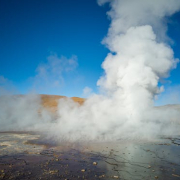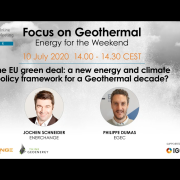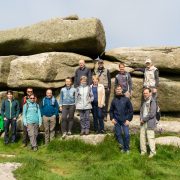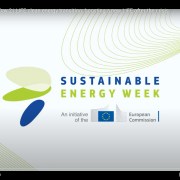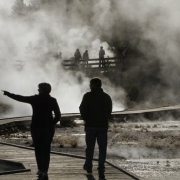LPRC participates at the GEOENVI-CROWDTHERMAL joint webinar – part 1
On Tuesday 16 March, GEOENVI and the CROWDTHERMAL project, where LPRC leads one work package, hosted a joint online event titled: “Targeting acceptability and co-ownership for deep geothermal projects”. In this event, an expert panel discussed recommendations and ways forward for public engagement for deep geothermal, based on good practices on crowdfunding from the CROWDTHERMAL project and gave some academic perspectives on the subject.
Mission statement of both projects:
The objective of the GEOENVI project is to answer environmental concerns in terms of both impacts and risks, by first setting an adapted methodology for assessing environment impacts to the project developers, and by assessing the environmental impacts and risks of geothermal projects operational or in development in Europe.
The webinar (part 1):
Both EU projects tackle the question of public engagement with different hypothesis, so this webinar was an opportunity to gain a better overall understanding of public engagement based on two different scopes and methodologies.
The first part of the webinar was focused on the research output of the GEOENVI project. GEOENVI argues that further development of geothermal projects will boil down to creating an energy community and better communication on the side of developers. The combination of these two aspects is believed to have the potential to raise social acceptance of geothermal projects.
Building an energy community is the action of involving local stakeholders (regulators, local industries, SMEs and individual citizens) in the production of sustainable heat and/or electricity. The aim is to ensure that energy production can provide opportunities to local businesses (see similar conclusion from the Trends in geothermal webinar) as well as energy for local households. The figure below showcases some of the inititation that may be undertaken by project developpers and regulatory authorities to insert energy project in a community to the benefits of a variety of economic activities.
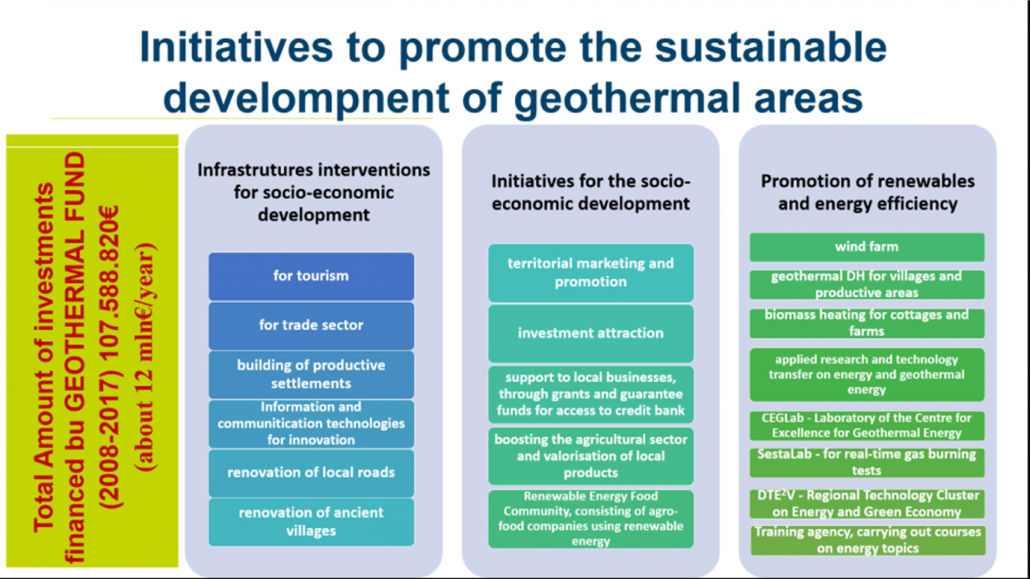
1Initiatives to promote the sustainable development of geothermal areas.
With regards to dissemination and communcation of project activities, GEOENVI discovered that there is a gap between how project developpers think they communicate and how the public feels it is informed. On the following figure, it is appararent that the public generally feels poorly informed. This misunderstanding in communication draws a wedge between a project and its surrounding community. In Alsace, this wedge resulted in tension between local communities and geothermal development in spite of the geothermal potential of the area and the positive economical impact of competititive green energy on its surrounding market. The problematic is particularly interresting when we consider that misinformation leading to mlistrust of a technology is also visible in other sector (wind turbines, electric cars and more recently vaccines).
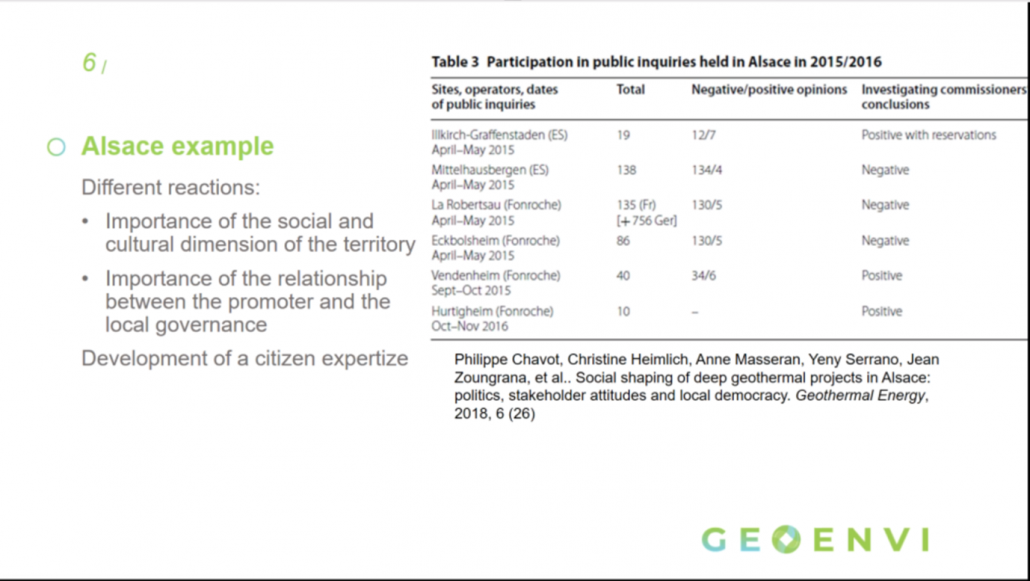
Participation in public inquiries held in Alsace 2015/2016.
Based on these two problematics, GEOENVI will provide policy recommendation for the European Union in hope that it could turn the tie of geothermal development in the continent, thus meeting climate goals whilst ensuring social gains at local level.
GEOENVI calls for European standards on information sharing by setting up minimum qualitative requirements for information sharing on energy projects. This will not only ensure better trust into new green technologies but also enables project developpers to draw conclusions from other projects that have similar minimal communication requirements:
- Choose and collect the relevant information enabling project developpers and researchers alike to confidentially collect environmental concerns and posititve impact to compare any project with other Renewable Energy Sources (RES);
- Adapt the communication target: distinguish ‘public’ from ‘experts’ in the communication strategy so that anyone can understand the purpose and methodlogy of an energy project in his/her/their own words;
- Improve data accessibility and awareness of accessible information: FAIR data principle , independent appeal commintee for confidentiality issues;
- Share reliable information: All project developpers shall ensure a pro-active data sharing strategy to inform the public in the name, of transparency and trust building.
This article continues on part 2.

